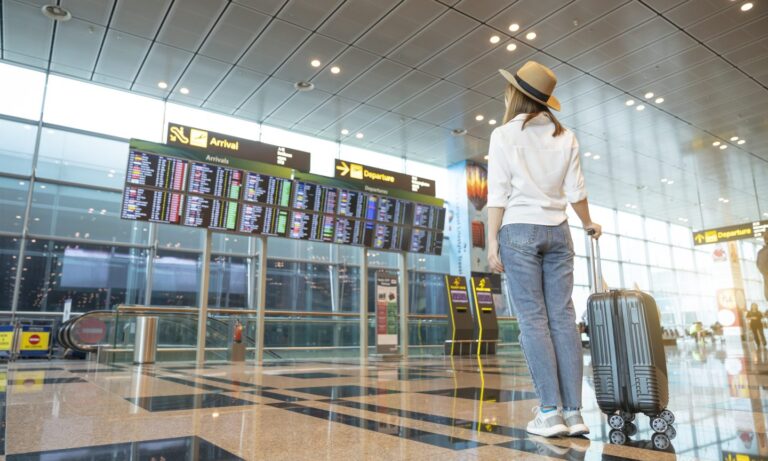You just got a cancellation. What now? Even the best-seasoned traveler can be thrown into chaos by unexpected disruptions.
Thankfully, cancellations of flights are becoming less frequent. According to the Air Travel Consumer Report of the U.S. Department of Transportation, for the first quarter of 2023 the U.S. airline cancellation rate was only 1.7%. This is down from 4.1% in the same time period of 2022. For those in the 1.7% group, however, an canceled flight can have a similar impact on your finances as it does your travel plans. You can avoid this if you are smart with your money.
Understanding your rights to compensation and reclaiming your refund is the first step to getting your vacation back on track at minimal expense.
1. Find the Customer Service Desk
If you are already in the airport, head straight for the Customer Service desk. As time is money, other passengers on the cancelled flight may also be heading to the airport, competing for the few seats that are available on the next flight.
You can also request compensation for flight delays at the customer service desk. The law in the United States does not require it. Many airlines still offer customer service guarantees in case of cancellations or delays that are within their control. They provide relief such as meals and travel vouchers. The DOT Airline Customer Service Dashboard outlines these. If you’re polite, even if your circumstances do not qualify for the official airline pledge, you might be able to get bonus miles or vouchers from the gate agent if the delay is shorter.
In Europe, air travelers have more rights. According to EU rules on flight delays, passengers are entitled to compensation of up to 600 Euros for cancellations and delays, depending upon the distance traveled and the length of delay.
Contact your airline via social media, the mobile app, or phone if you are not present at the airport.
2. Book your Flight Again
All major U.S. airlines have promised that they will rebook their passengers with the same airline without additional charge. Many of them also rebook automatically. This could eliminate the need for you to crowd the counter at the customer service desk. You can ask for a change of flight if you prefer another one that is to or near your destination.
You can also rebook with a partner carrier (American Airlines, Alaska Airlines) without any additional charges. This is assuming that the partner airline flies the exact route you want to travel.
You’ll be responsible for the cost if you decide to change airlines. Booking last-minute flights is usually expensive.
If you booked a last-minute flight with another airline at $499, but you got a deal of $49 for the same flight, you may not want to get a refund. It might feel as if the $49 refund is just adding salt to an already painful situation.
3. Travel insurance: Check if you are covered
Travel insurance policies vary in terms. However, if they include trip interruption coverage, then you could be reimbursed for any additional expenses incurred as a result of the cancellation. Travel insurance can reimburse up to a few thousand dollars of expenses.
Travel insurance is a good option in this case. You can get compensation from travel insurance for alternative transportation, such as a car rental or flight with another airline.
Be sure that you are using your insurance policy for a valid reason. Not all insurers will cover you in every situation. Some policies cover severe weather, but not all. A country that closes its borders because of a pandemic is generally not covered under any insurance policy, except for the Cancel For Any Reason coverage.
It is possible that you purchased travel insurance through a particular insurance provider or included it in your purchase of airfare. You may also be covered by travel insurance, even if you are unaware of it. As a benefit, many travel credit cards include trip insurance when you pay for your trip with the card. You can check your card’s benefits guide (usually mailed or available online), to find out if it offers the deal.
4. You can find your bag
Find out the location and status of all checked baggage at the counter. The bags could either be in the plane or have been unloaded. Idealy, luggage tags with contact information would accompany your bags to reduce any anxiety about lost items. To reduce the chance of your luggage being lost, keep in touch with staff at the airline.
You should not pack important items like medications in checked luggage. Instead, you should keep them in your carry on. The customer service desk can help retrieve the bags if you require access to your belongings in the meantime.
Many travel insurance policies offer some type of luggage reimbursement , allowing you to get your money back if you lose something you’ve packed.
